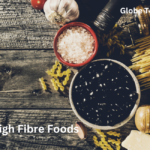Tea, a beverage cherished worldwide, has transcended cultural boundaries to become a symbol of both tradition and modern wellness. Beyond its delightful taste and aromatic allure, tea has been linked to numerous health benefits, with some varieties even associated with longevity. In this exploration, we delve into the science behind the connection between tea and longer life, emphasizing the importance of choosing the right teas for optimal health benefits.
The Science Behind Longevity Teas
Tea, rich in antioxidants, plays a pivotal role in cellular health and aging. Antioxidants combat free radicals, unstable molecules that can damage cells and contribute to aging and diseases. The polyphenols found in tea, particularly catechins, have been extensively studied for their potential to promote longevity by protecting the body from oxidative stress.
1. Green Tea
Green tea is often heralded as “Nature’s Elixir” due to its remarkable health benefits and rich reservoir of antioxidants. Derived from the leaves of the Camellia sinensis plant, green tea has been an integral part of traditional Asian medicine for centuries. The unique processing method, which involves minimal oxidation, helps the leaves retain their natural color, flavor, and, most importantly, their health-promoting properties.
Overview of Green Tea’s Rich Antioxidants:
At the heart of green tea’s therapeutic prowess lies its abundance of antioxidants, particularly catechins. Epigallocatechin gallate (EGCG), one of the most potent catechins, is celebrated for its robust antioxidant activity. Antioxidants play a crucial role in neutralizing free radicals in the body, which are unstable molecules that can cause cellular damage, accelerate aging, and contribute to various diseases, including cancer.
Studies on Green Tea and Longevity:
Numerous scientific studies have explored the potential link between green tea consumption and longevity. Research suggests that the regular intake of green tea may be associated with a lower risk of chronic diseases, including cardiovascular ailments and certain types of cancer. The antioxidants in green tea are believed to contribute to these health benefits by protecting cells from oxidative stress.
Best Green Tea Varieties for Health Benefits:
Green tea comes in various varieties, each with its unique flavor profile and health benefits. Some of the best green tea varieties for promoting longevity include:
- Sencha: A popular Japanese green tea with a delicate balance of sweetness and bitterness.
- Matcha: Known for its vibrant green color, matcha is a powdered green tea that provides a concentrated dose of antioxidants due to the consumption of whole tea leaves.
- Dragon Well (Longjing): A revered Chinese green tea with a smooth, chestnut-like flavor.
- Gunpowder Green Tea: Named for its rolled leaf appearance, this tea has a bold, smoky flavor.
2. White Tea
White tea, often referred to as the “Delicate Longevity Brew,” stands out among its tea counterparts for its minimal processing and subtle, nuanced flavors. Derived from the young leaves and buds of the Camellia sinensis plant, white tea undergoes minimal oxidation, preserving the natural goodness inherent in the tea leaves.
Explanation of White Tea’s Minimal Processing:
White tea is delicately processed, allowing the leaves to wither and dry naturally. This minimal processing not only preserves the tea’s natural appearance but also retains a higher concentration of antioxidants compared to more processed teas. The lack of extensive oxidation ensures that the tea maintains its light color and subtle flavor profile.
Antioxidant Properties Specific to White Tea:
The primary antioxidants in white tea include catechins, theaflavins, and polyphenols, which are known for their ability to combat oxidative stress. These antioxidants contribute to cellular health by neutralizing free radicals and reducing the risk of chronic diseases associated with aging.
Comparisons with Other Teas for Longevity:
In the realm of longevity teas, white tea distinguishes itself with a gentler taste and a lighter caffeine content compared to green or black teas. Its unique blend of antioxidants positions white tea as an excellent choice for those seeking a milder flavor profile while still reaping the benefits of a tea known for promoting longevity.
3. Oolong Tea
The production of oolong tea involves a semi-oxidation process, meaning that the tea leaves are partially fermented. This intentional balance between oxidation levels imparts oolong with a diverse flavor profile, encompassing floral, fruity, and earthy notes. The degree of fermentation can vary, leading to a spectrum of oolong teas with distinct characteristics.
Polyphenols and Their Role in Longevity:
Oolong tea contains a wealth of polyphenols, including catechins and theaflavins, which contribute to its potential health benefits. These polyphenols possess antioxidant properties, aiding in the neutralization of free radicals and promoting cellular health. The unique combination of compounds in oolong tea makes it a compelling choice for those seeking a well-rounded tea for longevity.
Best Oolong Teas for Health-Conscious Individuals:
Several oolong tea varieties are celebrated for their health benefits and distinctive flavors:
- Tie Guan Yin: A fragrant and floral oolong tea with a light and sweet taste.
- Da Hong Pao (Big Red Robe): Known for its rich, roasted flavor, this oolong is often considered a premium tea.
- Dong Ding: Hailing from Taiwan, Dong Ding oolong offers a balanced and smooth taste with a hint of fruity sweetness.
4. Black Tea
Black tea, extending beyond its bold and robust flavor, has gained recognition for its potential health benefits, particularly in promoting cardiovascular health. Through a distinct fermentation process, black tea acquires its dark color and rich taste, offering a unique array of compounds that contribute to its place as a longevity tea.
Exploration of Black Tea’s Fermentation Process:
Unlike green and white teas, black tea undergoes full fermentation, resulting in the oxidation of tea leaves. This process, known as fermentation or oxidation, imparts the characteristic deep color and bold flavor to black tea. The prolonged oxidation also transforms the tea’s chemical composition, giving rise to specific health-promoting compounds.
Health Benefits of Black Tea for Cardiovascular Health:
Numerous studies have explored the potential cardiovascular benefits associated with black tea consumption. The presence of flavonoids, particularly theaflavins and catechins, has been linked to improvements in heart health. Regular consumption of black tea may contribute to lower blood pressure, reduced risk of stroke, and improved cholesterol levels.
Recommended Black Teas for Longevity:
For those seeking to incorporate black tea into their longevity-focused routine, several notable varieties stand out:
- Assam: Known for its bold and malty flavor, Assam black tea originates from the Assam region in India.
- Darjeeling: Often referred to as the “Champagne of Teas,” Darjeeling black tea boasts a delicate yet complex flavor profile.
- Earl Grey: Infused with bergamot oil, Earl Grey is a fragrant black tea with a distinctive citrusy aroma.
5. Herbal Infusions
Herbal infusions, while technically not true teas, offer a diverse array of origins and health benefits, making them a captivating choice for those exploring the path to longevity. Derived from various plants, flowers, and herbs, herbal teas provide a caffeine-free alternative with unique flavors and potential therapeutic properties.
Overview of Herbal Teas and Their Diverse Origins:
Unlike true teas derived from the Camellia sinensis plant, herbal teas, or tisanes, encompass a broad spectrum of plants and botanicals. Chamomile, peppermint, hibiscus, and lavender are just a few examples of the diverse ingredients used to create herbal infusions. Each herb contributes distinct flavors and potential health benefits, making herbal teas a versatile option for longevity enthusiasts.
Herbal Teas Without Caffeine for Different Preferences:
One notable advantage of herbal infusions is their caffeine-free nature. This makes herbal teas an excellent choice for individuals sensitive to caffeine or those looking to enjoy a soothing cup in the evening without the stimulating effects. The absence of caffeine also expands the range of herbal teas suitable for various preferences and lifestyles.
Health Benefits of Specific Herbal Teas for Longevity:
Several herbal teas are celebrated for their potential health benefits:
- Chamomile Tea: Known for its calming properties, chamomile tea may promote relaxation and improve sleep quality.
- Peppermint Tea: Valued for its digestive properties, peppermint tea can soothe the stomach and alleviate indigestion.
- Hibiscus Tea: Packed with antioxidants, hibiscus tea may contribute to heart health by lowering blood pressure.
6. Pu-erh Tea
Pu-erh tea, often considered the “Fermented Magic for Longevity,” stands out as a unique and distinctive tea variety with a special fermentation process. Originating from the Yunnan province in China, pu-erh undergoes microbial fermentation that contributes to its rich flavor profile and potential health benefits.
Introduction to Pu-erh Tea and Its Fermentation Process:
Pu-erh tea is crafted from the leaves of the Camellia sinensis plant, much like other true teas. What sets pu-erh apart is its post-production fermentation process, where the tea undergoes microbial fermentation over an extended period. This fermentation can occur naturally (sheng or raw) or through an accelerated process (shou or ripe), resulting in a tea with unique characteristics.
Microbial Properties and Their Impact on Gut Health:
The microbial properties developed during the fermentation process contribute to pu-erh tea’s potential benefits for gut health. Probiotics and other compounds formed during fermentation may support a healthy balance of gut flora, promoting digestion and overall well-being. This connection between gut health and longevity has been a subject of growing interest in scientific research.
Longevity Studies Related to Pu-erh Tea Consumption:
While research on pu-erh tea and longevity is ongoing, some studies suggest potential health benefits associated with regular consumption. These may include improved cholesterol levels, cardiovascular support, and antioxidant properties. The unique combination of fermentation and the resulting microbial richness makes pu-erh a fascinating choice for those seeking a distinctive tea with potential longevity benefits.
7. Matcha
Matcha, revered as the “Green Powerhouse,” is a unique and concentrated form of green tea that has gained widespread popularity for its vibrant color, intense flavor, and potential health benefits. Originating from Japan, matcha is prepared by finely grinding shade-grown tea leaves, resulting in a powdered form that is whisked into a frothy beverage.
Explanation of Matcha’s Unique Preparation:
Matcha’s distinctive preparation involves shading the tea plants for a few weeks before harvest to enhance chlorophyll production. This process gives matcha its vibrant green color and boosts the concentration of nutrients. After harvesting, the leaves are stone-ground into a fine powder, ensuring that the whole tea leaf is consumed, making matcha a concentrated source of antioxidants.
Concentration of Antioxidants in Matcha:
Matcha is renowned for its high levels of antioxidants, particularly catechins, and the potent compound epigallocatechin gallate (EGCG). The concentration of these antioxidants exceeds that of traditional green tea due to the consumption of the entire leaf. Antioxidants in matcha play a crucial role in neutralizing free radicals, supporting cellular health, and potentially contributing to longevity.
Incorporating Matcha into Daily Routines for Longevity:
Matcha offers versatility in consumption beyond traditional tea. It can be incorporated into various recipes, including lattes, smoothies, and desserts. The ritualistic preparation of matcha, often associated with traditional Japanese tea ceremonies, enhances the mindful experience of enjoying this “Green Powerhouse.”
Conclusion
the journey to a longer life can be enriched by incorporating the right teas into your routine. Whether you choose the robust flavors of black tea, the delicate notes of white tea, or the antioxidant-rich green tea, each cup contributes to a holistic approach to well-being. Embrace the science, savor the rituals, and let tea become a companion on your path to a longer and healthier life.
Tea Blends
Blending different teas allows enthusiasts to maximize health benefits. Creating personalized blends can combine the strengths of various teas, offering a tailored approach to longevity. Notable examples include blends incorporating green tea, oolong, and herbal infusions.
Ceremonial Tea Drinking: Rituals for Wellness
Traditional tea ceremonies, rooted in mindfulness, provide an avenue for wellness rituals. The connection between mindfulness and longevity is well-established, and integrating tea ceremonies into daily life can enhance overall well-being.
Choosing Quality Tea
Sourcing high-quality tea leaves is crucial for reaping the full benefits of tea consumption. Understanding how to read tea labels and identifying trusted brands and suppliers ensures that you make informed choices for your longevity tea journey.
Brewing Techniques for Longevity Teas
Optimal brewing conditions play a significant role in preserving the antioxidants present in tea leaves. Maintaining the right water temperature and adhering to appropriate steeping times for different tea varieties maximizes the health benefits derived from each cup.



